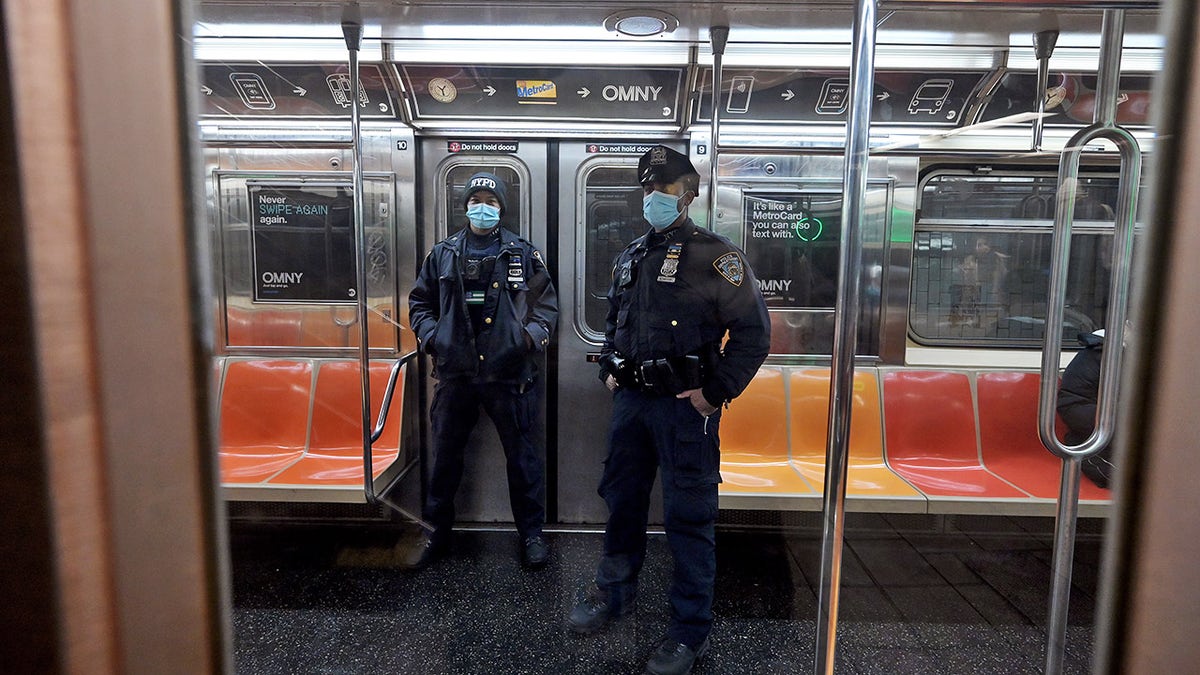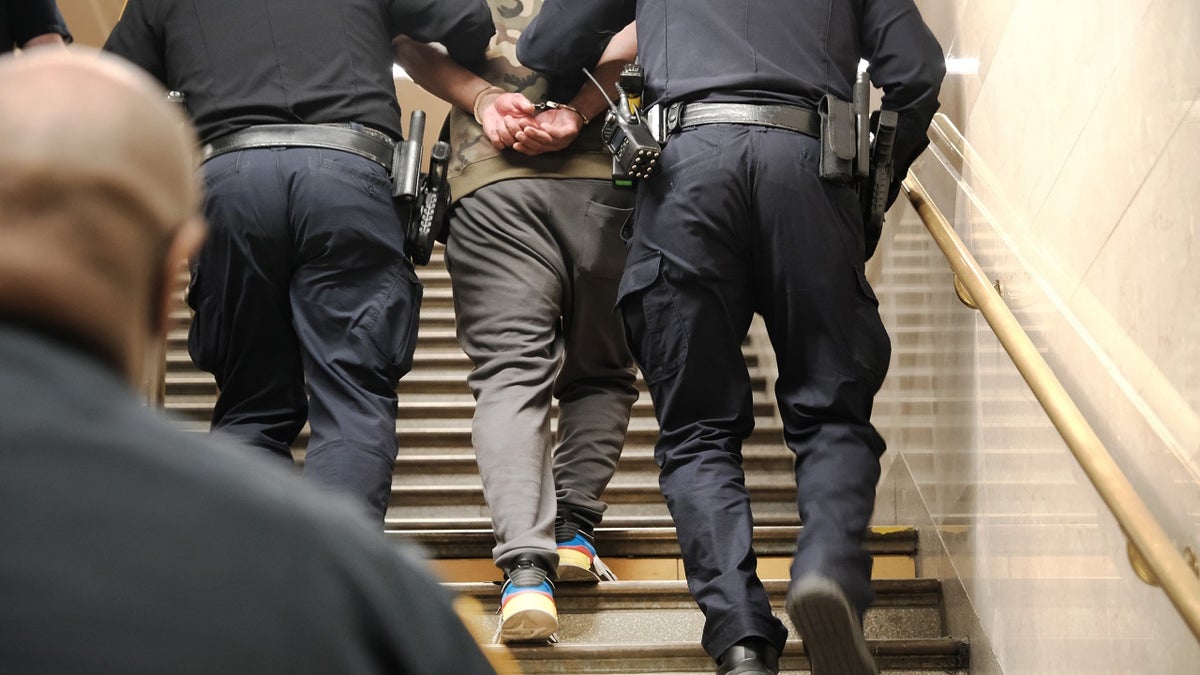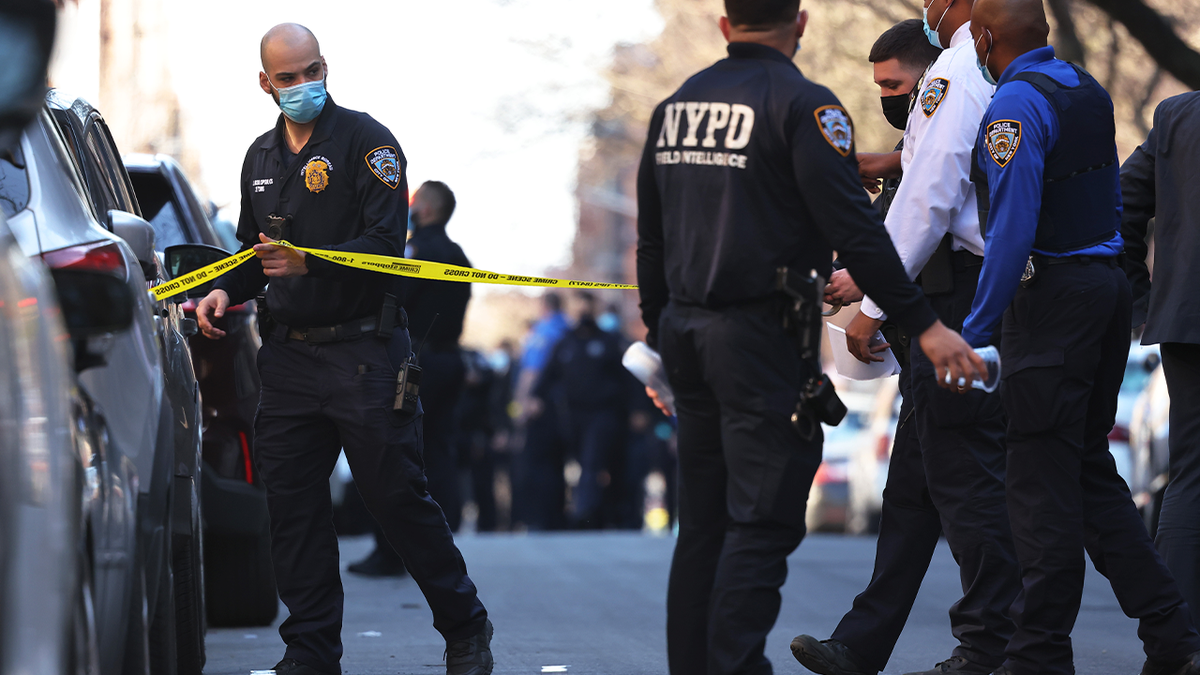NYC crime will continue at high level 'for the foreseeable future': Former NYPD commissioner
WARNING—Graphic content: Former NYPD Commissioner Ray Kelly says 'all indications' point to rising crime levels.
The New York Police Department has blown through $564.2 million in its overtime budget, and is projected to spend $750 million in overtime in all of fiscal year 2022 – far beyond the $607.3 million allocated for the year, according to the city’s Independent Budget Office.
The NYPD – said to be the largest police force in the country – is projected to surpass its budgeted overtime expenditures by $142.7 million for fiscal year 2022, which runs through June, according to IBO data provided to Fox News Digital and first reported by Bloomberg. If the office’s projections ring true, the NYPD will have spent the second-highest amount of overtime, behind 2020 with $837.5 million, in the six years provided by IBO.
"Sometimes, we gotta force cops to take the overtime … because we need extra coverage."
A spokesperson for the office noted that the statistics reflect all NYPD overtime, including that for civilian members, but more than 80% comes from uniformed officers.
But what is causing such high overtime expenditures?
"I would guess that this fiscal year, with the violence being up as high as it has been, they’ve been doing more and more of that violence reduction overtime. It’s putting the extra cops out on the streets," said Terence Monahan, who served as the NYPD's Chief of Department – the highest-ranking uniformed police officer – from 2018 to 2021, under Police Commissioners Dermot James O'Neill and Dermot Shea.
"Plus, now events are happening. Parades are happening again. Parades always come into overtime because it takes a lot of personnel," he added.
NYC MAN, 77, PUNCHED AND STOMPED IN FACE DURING ALLEGED ROBBERY, VIDEO SHOWS
Monahan, who spent just months shy of 40 years with the department, told Fox News Digital it is not unusual for the NYPD to go over budget in terms of its overtime spending, but noted that OT costs in 2021 were as low as they were – $480.50 million – because there was "such a squeeze on everything we did."
"Plus, there were no events, there were no parades – everything was canceled, which helped somewhat on the overtime," he said. But the department also "didn’t do any of our violence reduction overtime that summer, which led to the most violent summer the city’s ever seen."

Two NYPD officers ride a downtown local 6 train leaving Union Square subway station in Manhattan, as the NYPD adds 644 police officers to patrol the subways after a homeless man stabbed and killed two people on the A train over the weekend, New York, NY, February 16, 2021. (Anthony Behar/Sipa USA)No Use Germany.
Monahan later went on to work for New York City’s Economic Development Corporation as a senior advisor for recovery, safety and planning, before forming Monahan Consulting, LLC, where he now serves as CEO.
"This is not spending, this is investing."
Asked if he had a response to those who might say the officers are trying to take advantage of the department’s overtime system, he said, "Absolutely not."
"Sometimes, we gotta force cops to take the overtime," he explained. "You know, they work on a schedule and occasionally they get Friday and Saturdays off, and now they're being told they gotta come in because we need extra coverage."
NYC MAYOR ERIC ADAMS WEARS ‘END GUN VIOLENCE’ TUX TO MET GALA 2022
He added: "So, sometimes you're forcing people to come in to work that don't want to be there to make sure that everything that needs to be covered is covered."
So far in 2022, police have grappled with high crime rates and reverberations from changes made in prior years, explained Monahan and Maria "Maki" Haberfeld, chair of the Law and Police Sciences Department at New York City’s John Jay College of Criminal Justice.
Total crime year-to-date as of May 1 remained high compared to the same time in 2021, with a 41.6% increase, the NYPD’s latest crime statistics show. Shootings and murders were down year-to-date and for last month, compared to April 2021, the department said.
And a new Quinnipiac University poll released Wednesday showed that voters consider crime to be the most pressing matter facing the city, with 49% deeming it the "most urgent issue."
The police department, at the urging of Mayor Eric Adams, has diverted more officers to new and pre-existing units to tackle specific target issues, such as subway crime and gun violence.

Police detain a man at a Times Square subway station following a call to police from riders on April 25, 2022 in New York City. (Photo by Spencer Platt/Getty Images)
On March 16, the NYPD unleashed its new Neighborhood Safety Teams, a unit that replaced the embattled Anti-Crime Unit in targeting gun crimes citywide. So far the NYPD has deployed teams to the 30 police precincts that make up 80% of the gun violence, and has made at least 2,300 arrests so far, Adams said.
And a month earlier, Adams unveiled his Subway Safety Plan, which took effect on Feb. 21 and took a zero-tolerance approach toward transit systems loiterers, turnstile-jumpers and criminal opportunists. The program was also aimed at providing services to homeless individuals and those experiencing mental health difficulties.
The program further called for "an increased presence of NYPD officers in subway cars and on platforms" as part of the city’s plans announced in January to deploy more than 1,000 more officers to the subway system.
John Jay's Haberfeld, also a multi-published author on topics including "Police Leadership" and "Enhancing Police Integrity," among several others, attributed the high overtime expenditures to "an unprecedented separation" in the department in the aftermath of the death of George Floyd and the subsequent news coverage of law enforcement. "Separation" refers to the number of officers who have left to the department.
"People retired early or just left the force," she said. "This by itself necessitated additional overtime just to make sure that the coverage is there – thousands of officers retired."
About 2,686 personnel resigned from the police department in 2021 – with 1,032 resigning and 1,654 retiring, according to figures provided to Fox News Digital. And 3,152 NYPD members left in 2020, with 2,599 of them choosing to retire.
The NYPD has lost 912 uniformed members so far this year as of May 3, with 380 resigning and 532 retiring, data show.
As for current staffing, the NYPD boasted 35,234 uniformed officers as of May 3, police department statistics show. It's about 230 people more than the budgeted headcount for FY 2022 and in FY 2023's proposal, but lower than the nearly 36,000 members allotted in FY 2020, which Monahan described as a "good number."
The Citizens Budget Commission, a nonpartisan New York-focused group, reported in March 30, 2022 that there were 1,410 vacancies within the Big Apple police department.
Haberfeld also pointed to the ranks of those who chose to leave the department.
"It’s not just about numbers. It's about who retires. If you have a large number of supervisors who retired, which was also the case because too many officers took an early retirement… this required additional overtime for other supervisors."
But she added that there are "a number" of factors contributing to this, including the "unprecedented rise in crimes." Police are racking up overtime while attempting to counter the surge "both reactively and proactively."
"Reactively, because the calls for service are much higher than before due to this unprecedented rise in crime," she went on. "And proactively trying to come up with the tactical deployment programs and as a solution to try to bring it to a manageable level."
"The only way" to target immediate crime concerns is by bolstering police deployments, she said.
"My opinion is that the city is out of control when it comes to crime. And on a daily basis, we have violent crime, shootings, stabbing," Haberfeld continued. "If it was up to me, I would put twice as many officers on the street, because it's not that the mere presence of officers will, you know, eliminate the problem, but it will certainly serve as a serious deterrent to street crime … this is not something that's going away."
Last month, Adams announced in his proposed FY 2023 budget that he was putting $5.59 billion toward the NYPD budget, compared to the department’s $5.44 billion budget from the previous year.
"This is not spending, this is investing," the mayor said at the time, according to local news station NY1.com. "A safe city is going to be a productive city."

NYPD officers respond to the scene of a shooting that left multiple people injured in the Flatbush neighborhood of the Brooklyn borough on April 06, 2021 in New York City. (Michael M. Santiago/Getty Images)
The money would go, in part, to overtime costs, as well as to fund efforts related to his Subway Safety Plan and toward the new Neighborhood Safety Units.
CLICK HERE TO GET THE FOX NEWS APP
"We cannot have a city where people are afraid to walk the streets, ride the subway, or send their children to school," he said, when making the April 26 budget announcement. "And our first 100 days, crime and tragedy looked far too many times and took lives of innocent people."
He later added: "Our sister Michelle Go was pushed to her death in front of a train, an act of horrifying hatred … Dozens more of our neighbors have been killed by gun violence. Unhoused New Yorkers were shot while they were sleeping on the street. An inspiring rapper was executed in cold blood. A 19-year-old girl was killed as she worked the night shift in East Harlem. We saw a grandmother wounded, six bullets in a young girl. An 11-month-old baby shot in the head. And two of our police officers were shot dead responding to a call."


























